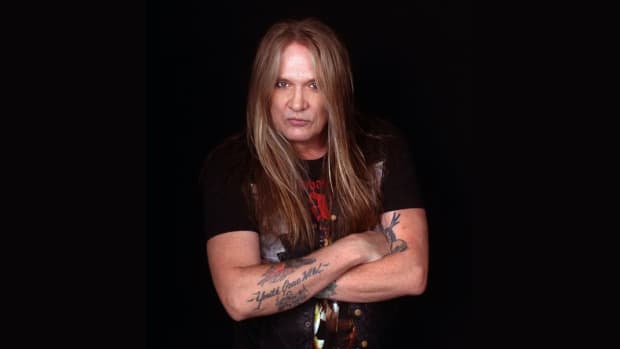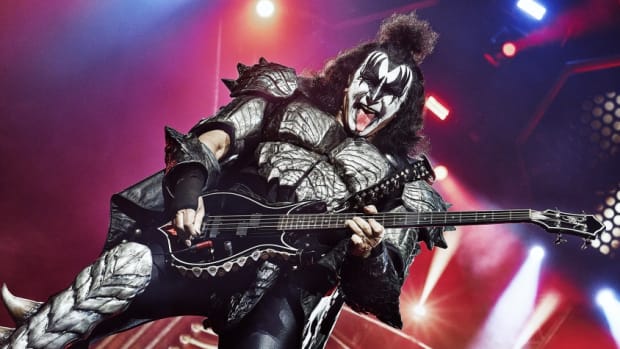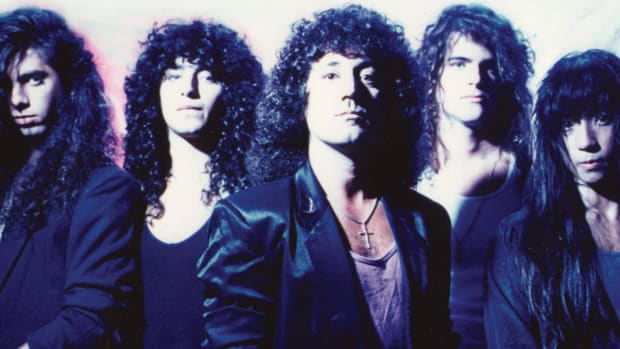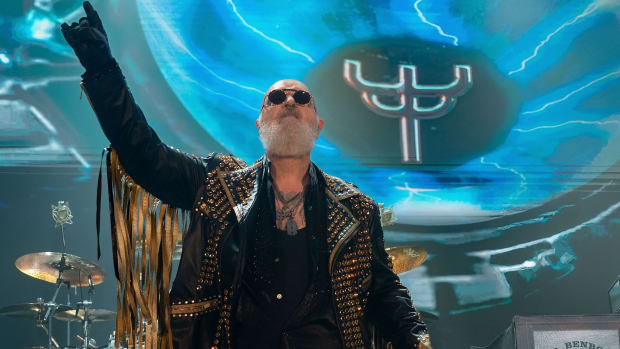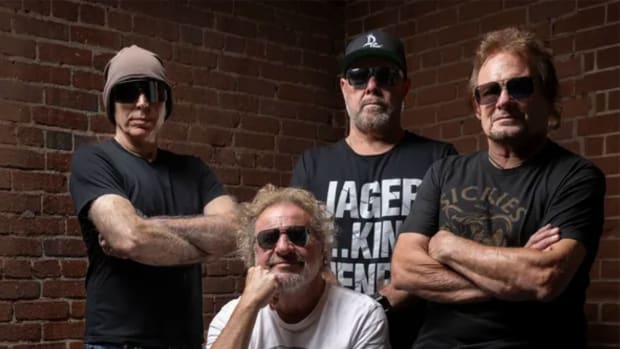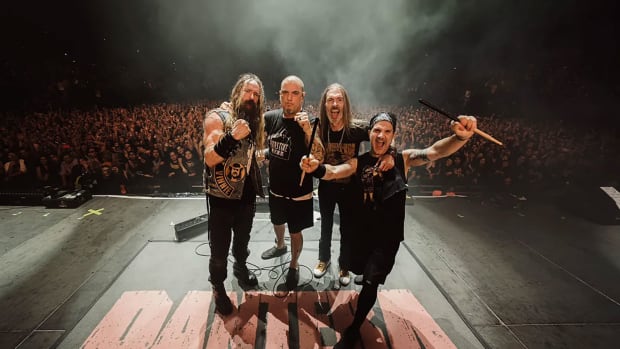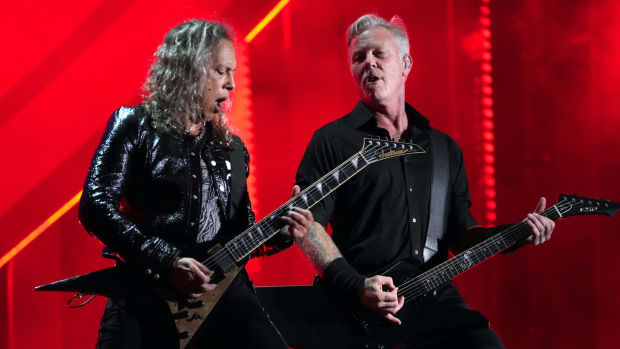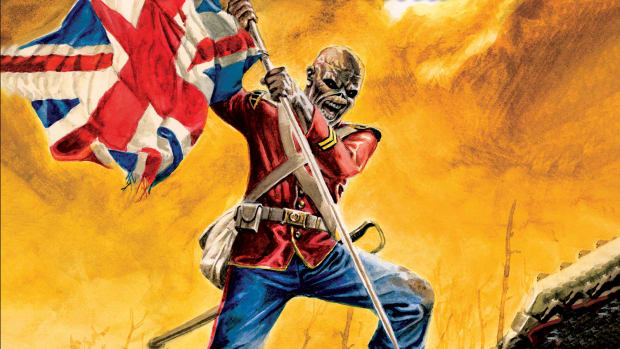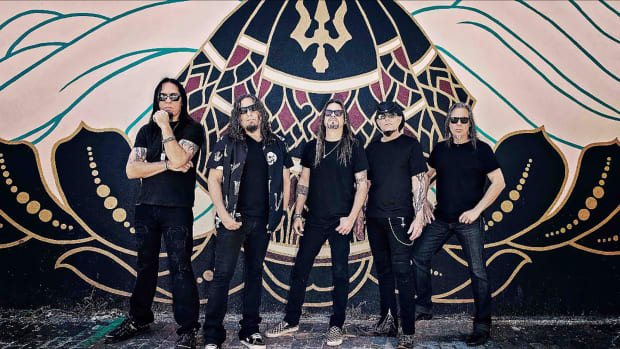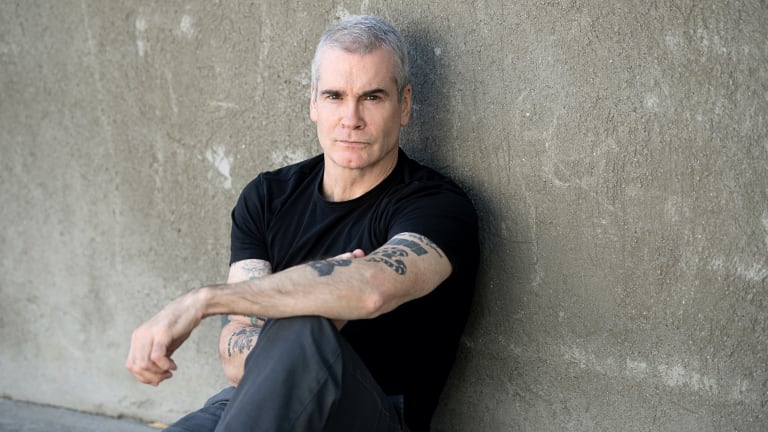
Henry Rollins on his favorite hard-rock front man, new spoken-word tour and meeting W.A.S.P.
Back in the early ‘80s, glam metal was just beginning to sink its claws into the Sunset Strip and preparing to not let go for the next decade. But at the same time, another West Coast music movement was fiercely ascendent, and it was centered about an hour south, in the area in and around Redondo Beach, where DIY heroes Black Flag, fronted by Henry Rollins, lived and worked. While it would seem the two scenes wouldn’t have much (or, really, anything) in common, Rollins can find at least some kinship. “The genres might be different,” he says, speaking to Metal Edge, “but past that, it’s just youth, ambition, anger, etc.”
At present, Rollins’ days with Black Flag, as well as with his more expansive, often improvisatory group Rollins Band, are well behind him. In fact, he “officially” retired from music some 15 years ago. But that doesn’t stop him from still getting up on the stage. Something of an artistic renaissance man, Rollins has over the decades immersed himself in acting, writing, photography and performing spoken word, among other pursuits. Currently, he’s out on the road on the Good to See You spoken-word tour, his first outing since 2018. Just prior to the tour’s kickoff, he caught up with Metal Edge to talk about the shows, his pandemic experience, his advice for modern musicians and more.
As for his favorite hard rock front man? Read on…
It’s been stated of the shows on the Good to See You tour that you’ll be “faithfully recounting the events of [your] life in the brief pre-Covid period since your last tour, and when things got even stranger over the last several months.” How would you characterize your pandemic experience? What was the strangest thing about it?
Henry Rollins: I’m loathe to complain as anyone who’s still alive has had their life changed and it wasn’t fair. Up until the pandemic, I had a lot of plans, as one does. Travel, tour, etc. Within a few weeks, the festival dates went away, my second trip to Antarctica was scuttled, etc. I had to do a hard reset and figure out what to do with the time to make the best of it. I was basically stuck in the house. So, I worked on writing projects which I had to do anyway but I threw myself into them. From that, three books were finished. One came out in 2020, the next one will be with us for the tour and the other one will hopefully be ready for the end of this year. As to characterizing my “pan-ex” it’s been very frustrating. Tours get booked and go away, etc. I’m hanging in there as best I can. That being said, so has everyone else.
In terms of connecting with your audience and expressing your point of view, what does a spoken word forum offer that is different from a musical performance?
Rollins: Besides the obvious, of no music, less volume, more words, etc., not much. It’s an attempt to connect. It’s what I always tried to do with music but it’s just me up there.
You lived in L.A. with Black Flag during the early ‘80s. Did you have contact with any Sunset Strip metal bands?
Rollins: I remember back in those days, Black Flag had some very heavy associates, people who were very good at being bad. One of them, a dead eyed guy who I won’t name was a kind of dirty deeds done dirt cheap type. One night I was walking on Sunset Blvd. and saw a hair metal guy who ended up being extremely famous and successful, dealing cocaine. The dead-eyed guy was standing behind him, just making sure everyone played well. He looked at me and his face was a billboard for “Keep walking. You don’t know me.” So, I did.
Another time, the Misfits were sound-checking at the Whisky. I was there hanging out and Vince Neil was at the bar. One or two of the Misfits started yelling at him, for what reason I don’t know why. I think one of them might have asked me who he was. Mr. Neil got up and left quickly and the Misfits laughed.
Black Flag would often record at a studio called Total Access. It was cheap and sometimes to save money, Spot and I would go in at midnight and I’d do vocals. One night we walk in and W.A.S.P. was walking out. I remember how tall they all were. I asked what they doing. I was told it was demos. This is were we were working on the cheap to try and make the My War album I think it was and it’s where W.A.S.P. was making demos. The fiscal differences of the major labels and the indie labels at that time were huge. I don’t know if they were what is considered a hair band but that happened. I’m not sure what record the demos were for. I have their first three albums.
Despite the many obvious differences between that scene and your own, it can be said that many of the Sunset Strip bands were, in the early days, fiercely D.I.Y. Bands like Mötley Crüe and Ratt started their own record labels, self-released their albums, and so on. Do you see any similarities with that scene and your own experience?
Rollins: I think in those days Mötley Crüe and Black Flag had the same distribution. I remember we were sent a few copies of the original Too Fast For Love on Leathur Records. I think Joe Carducci, who worked at the label kept them. I think there were similarities in that it’s just a bunch of young people trying to get somewhere with their music and not be told how it’s supposed to be. The genres might be different but past that, it’s just youth, ambition, anger, etc.
What advice would you give to someone trying to get their voice heard in music today?
Rollins: I would say that to get anywhere in music, you have to really want it. Like lose all your friends and have people tell you you’re out of your mind want it. Be willing to die for it. It’s one thing to say that, another to live it. I learned this in Black Flag. Greg Ginn and Chuck Dukowski were not going to be stopped. All I could do was try to keep up. This ethos has informed all the things I’ve done since.
Finally, who is Henry Rollins’ favorite ‘80s hard rock front man?
Rollins: I always admired David Lee Roth for his physicality. He was in top shape and burned a lot of calories up there. He once said to me that music should look like it sounds. I think he embodied that perfectly.
